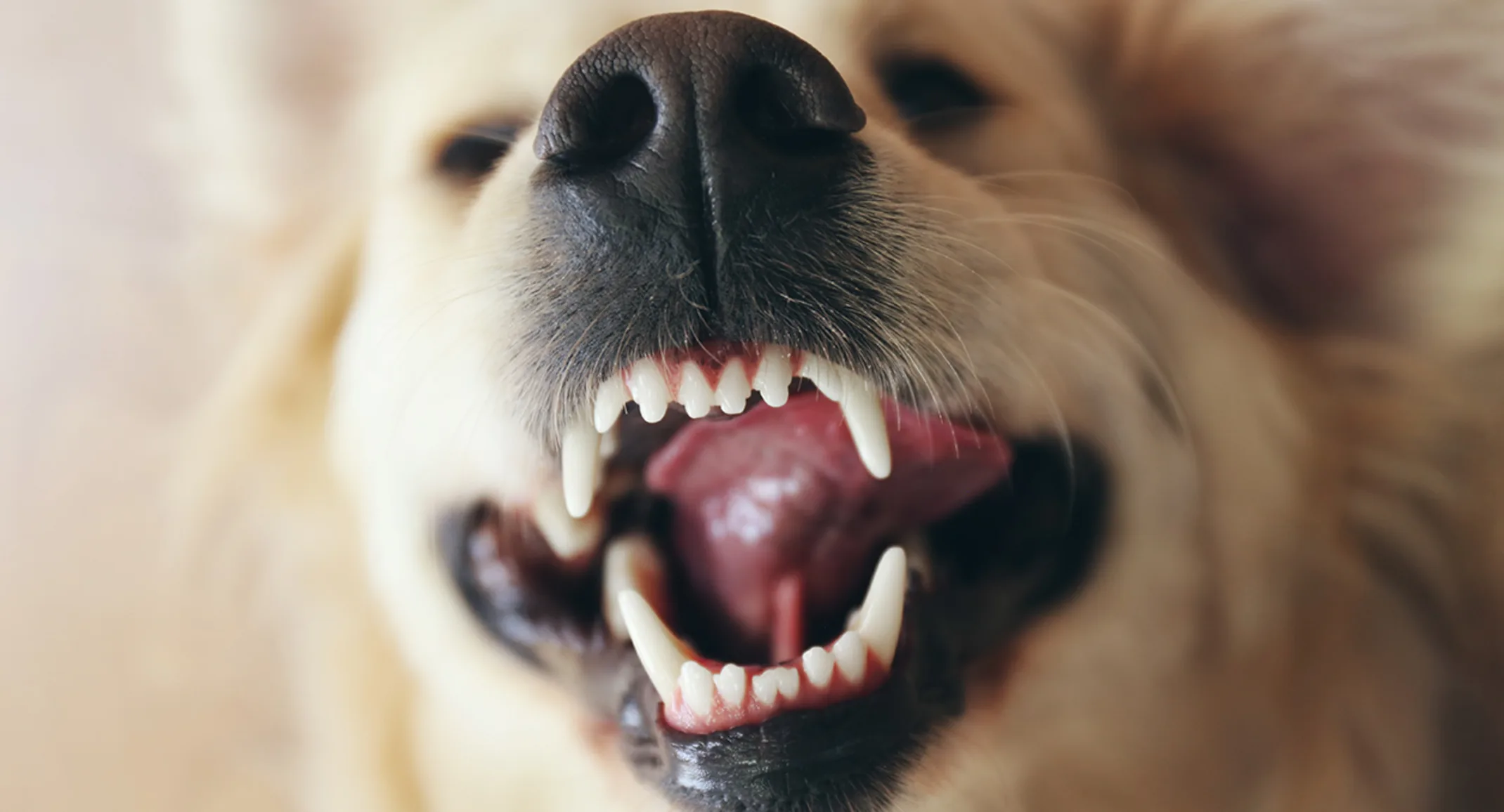Why Dental Care Helps Your Pet Live A Longer, Happier Life
The Exam Room

Oral health is an important—but often overlooked—part of your pet’s overall health and wellbeing. Your pet’s dental health is more than about fresh breath, because regular dental care can prevent unnecessary pain and periodontal disease, which could lead to a shortened lifespan. Learn how dental care helps your pet live a longer, happier life, and how to ensure they receive the dental care they need.
Dental disease affects all pets
Dental disease is one of the most common medical conditions in dogs and cats, with nearly all pets developing some form of dental problem by age 3. Oral bacteria, along with your pets immune response to the bacteria, can cause progressive loss of the tooth’s support structures, such as your pet’s gums and bone. Plaque can harden into cement-like tartar within 24 hours after your pet eats, trapping bacteria in and around the gumline and tooth roots. Once tartar has formed it can only be removed professionally by your veterinarian under general anesthesia. If plaque is not removed, periodontal disease can develop. Periodontal diseases may be reversible if caught early, but advanced disease may warrant tooth extraction.
Some pets have a higher risk of developing dental disease
Although the genetic disposition to dental disease varies by individual, certain breeds are more prone than others. Small-breed dogs generally are more prone to periodontal disease, whereas larger breeds can be more likely to fracture a tooth due to heavy chewing. Cats also develop dental disease, with certain breeds more prone to periodontal disease and tooth resorption.
Your pet may be suffering in silence
If you have experienced a dental complication, such as a broken tooth, you know how painful the condition can be. Pets experience the same dental pain, but you may not detect the problem, because they often mask their discomfort until the pain becomes severe. Therefore, you should ensure your pet has regular dental exams, so your veterinarian can assess your furry pal’s mouth, teeth, and gums. While bad breath is often dental disease’s first sign, other indications include:
Red, inflamed, or bleeding gums
Tooth discoloration (e.g., gray or pink), particularly on the cuspids (i.e., the large canine teeth)
Excessive drooling
Pawing at the mouth
Shying away from grooming or head petting
Difficulty chewing food
Blood-tinged saliva
Reluctance to drink cold water
Dental disease affects more than your pet’s teeth
Dental disease can cause problems that extend far beyond your pet’s teeth. Dental disease can cause the following potential conditions:
Kidney, heart, and liver problems — Bacteria from plaque and tartar buildup can leak into your pet’s bloodstream, causing damage to these essential organs.
Tooth root infections — As bacteria make their way below the gumline, the tissue surrounding the root can become infected.
Under-eye swelling — Tooth root abscesses can cause a swelling below the eye that you may confuse with an eye or facial problem. When lower molars die, “pimple- like” lesions can be found along the bottom jaw and be mistaken as skin lesions.
Dental disease in pets is largely preventable
Fortunately, you can help your pet avoid dental disease by properly caring for their teeth. To maintain your pet’s oral health, follow these tips:
Daily toothbrushing— Brushing your pet’s teeth daily with pet-specific toothpaste is the best way to battle plaque and tartar, and keep their teeth healthy.
Dental products — Ask your veterinarian to recommend effective dental products and treats. Your veterinarian may suggest these dental health products:
Dental chews and treats (animals should never chew on products that cannot be bent or flexed by hand)
Food and water additives
Oral rinses and wipes
Prescription dental diets
Dental exams — Your veterinarian should examine your pets teeth and gums annually to look for early signs of dental disease, and may recommend your pet have a professional cleaning. In addition, because they cannot see below the gumline—where most dental problems begin—your veterinarian may take dental X-rays.
Professional teeth cleaning — Unless your veterinarian recommends more frequent cleanings, healthy pets should have their teeth professionally cleaned annually. Proper cleaning and dental X-rays can only be performed thoroughly and safely while your pet is under general anesthesia. Professional teeth cleaning includes:
Scaling tartar from the tooth surface, above and below the gumline.
Polishing each tooth to remove microscopic etchings the scaling created, and to prevent bacteria from adhering.
Probing the gumline for pockets, which indicate periodontal disease.
Irrigating below the gumline to flush away bacteria and debris.
Your pet may require advanced dental care
A general practitioner veterinarian can perform your cat’s or dog’s routine oral examinations and teeth cleanings, but for more complicated conditions, they may refer your pet to a board-certified dentist—a licensed veterinarian with additional training and expertise in veterinary dentistry. You can find one in your area at www.avdc.org. Conditions that may require a board-certified veterinary dentist may include:
Oral surgery
Endodontics (e.g., fracture repair or root canal)
Extraction
Prosthodontic
Oral masses or lesions
Chew toys can fracture your pet’s teeth
While a high-quality chew toy can help remove plaque from your pet’s teeth, overly rigid chew toys can wear down their tooth enamel or cause tooth fractures. If you cannot bend or flex the toy, or if your fingernail cannot create an indentation in the surface of your pet’s chew toy, the product is likely too hard for them to chew safely. Always avoid giving your pet extremely hard items such as hooves, antlers, and bones, and choose dental products approved by the Veterinary Oral Health Council (VOHC). The VOHC’s seal of approval guarantees a product has been proven to slow plaque and tartar accumulation. Any chew toy made by man or nature can be destroyed by a determined chewer, and you should always supervise your pet with toys.
Now that you know the importance of cats’ and dogs’ regular dental care, use this locator to find a veterinarian near you, and schedule your pet’s dental evaluation.
